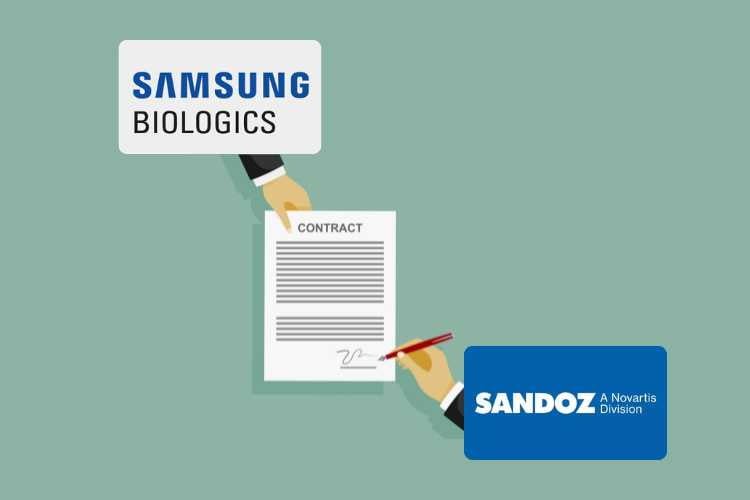Sandoz is expanding its biosimilar portfolio by signing a commercialization agreement with Samsung Bioepis for a biosimilar version of Johnson & Johnson’s immunology drug Stelara. The deal encompasses commercial rights in the US, Canada, Switzerland, the UK, and various European countries. The specific terms of the agreement have not been disclosed.
With this strategic move, Sandoz is positioning itself for five potential high-value biosimilar launches in the coming years.
“This deal represents another major step to reinforce our high-value biosimilar pipeline, in line with our plans to become a standalone global leader. It will further strengthen our immunology patient offering and means we now have five potential high-value upcoming biosimilar launches over the next few years.”
– Sandoz CEO Richard Saynor
Stelara is a cornerstone of Johnson & Johnson’s revenue, generating $9.7 billion in sales last year. The drug is used to treat a range of inflammatory conditions, including Crohn’s disease, plaque psoriasis, psoriatic arthritis, and ulcerative colitis. However, with its patents set to expire soon, Stelara has become a prime target for generic and biosimilar manufacturers.
To manage the transition, Johnson & Johnson has been settling with biosimilar companies, specifying potential market entry dates. Amgen, for instance, secured the earliest launch date for its Stelara biosimilar through a settlement, with a launch planned for January 1, 2025. Additionally, J&J reached agreements with Alvotech and Teva for a February 21, 2025 launch and with Fresenius Kabi and Formycon for a launch “no later than” April 15, 2025.
As of now, none of the Stelara biosimilars have received FDA approval. Sandoz’s move to commercialize Samsung Bioepis’ version of Stelara adds another player to the biosimilar landscape targeting this blockbuster drug.
Sandoz is also undergoing changes, with an official split from Novartis set for October 4. Despite recent revenue declines, the company has ambitious growth plans, aiming for $3 billion in sales growth over the next five years, partly driven by its robust biosimilar pipeline.





























